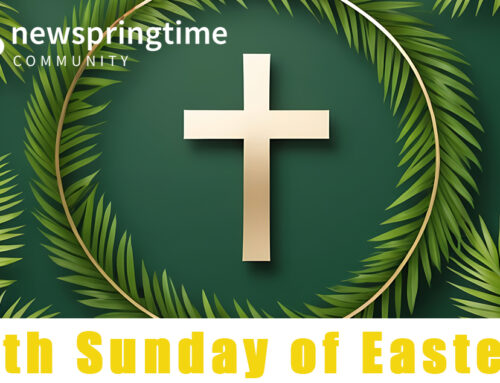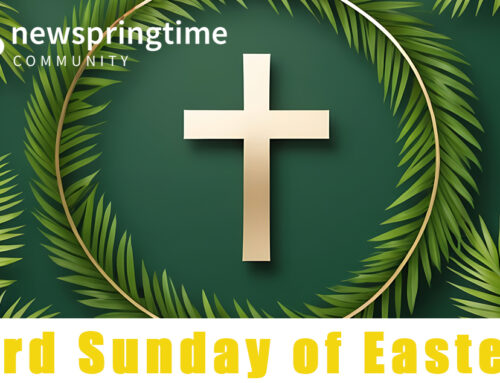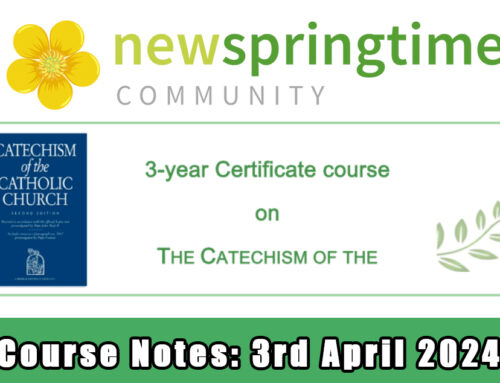If you would like to download a copy of this notes in PDF, please click here
This post-resurrection appearance of Jesus came to the collective group for the purpose of allaying their fears. They had, narrowly escaped arrest with Jesus in Gethsemane; they realised that as the disciples of one who was regarded as a dangerous agitator they would be under suspicion; and they were probably holding a consultation on the best method of withdrawing from the city without attracting the notice of the temple police or the Roman authorities. The doors were locked for fear that the Jews would send an arresting detachment for them as they had for Jesus.
The appearance of Jesus in the room excited both amazement and fear. The implication is clear that Jesus was not impeded by locked doors. The resurrection body has properties different from the body of flesh; yet it is not ethereal. There was a definite continuity between the physical body of Jesus’ earthly career and the new body since his hands and side still showed the scars that identified him. His greeting of “Peace” and the assurance of his identity calmed their fears and demonstrated by unmistakable proof that he was alive. They were overjoyed, not only to see him again, but also to realise that he was undefeated by death and that his claims had been validated. Although the greeting shalom, was a normal Jewish greeting, its significance was highlighted & changed because of who was saying it, an context in which it was spoken. The Hebrew root slm, means “to be complete” or “to be sound.” The verb conveys both a dynamic and a static meaning “to be complete or whole” or “to live well.” The noun had many nuances which can be grouped into four categories.
- shalom as wholeness of life or body, i.e., health
- shalom as right relationship or harmony between two parties or people
- shalom as prosperity, success, or fulfilment
- shalom as victory over one’s enemies or absence of war.
As we have noted on a previous occasion, that greeting had the power to fulfil what it said. In Num 23:19 we read, “God is not like people, who lie; He is not a human who changes his mind. Whatever he promises, he does; He speaks, and it is done.” Not only did the greeting of Jesus calm the apostles, in the future they would bring the same multi-faceted peace to those they would minister to. Just as God the Father sent Jesus to bring peace, so Jesus was commissioning the apostles to do the same in his name. As St Paul said in Eph 2:17, “Christ came and preached the Good News of peace to all — to you Gentiles, who were far away from God, and to the Jews, who were near to him.” Then Jesus breathed on them and gave the apostles the ability to bring peace by means.
Of divine forgiveness. The word ‘to breathe’ in Latin is ‘spiro’. In modern English we have a number of words which are derived from it:
- Aspire, i.e., “to pant with desire, for breath.”
- Expire, i.e. ‘to breathe out’.
- Inspire, i.e. ‘to breathe into’.
- Conspire, i.e. ‘to breathe with’.
The fourfold pattern of aspiration, expiration, inspiration and conspiration is clearly evident in one of John’s account of the post-resurrection appearance of Jesus in next Sunday’s gospel. When the disciples were locked in a secret hideaway they aspired
and longed for the promised Holy Spirit. Then Jesus came and stood among them. Having greeted the brethren, ‘he breathed on them,’ i.e. he expired, and said to the apostles, ‘receive the Holy Spirit’, i.e. allow yourselves to be inspired, while assuring them, ‘if you forgive men’s sins they are forgiven.’ During the ministry of Jesus, a Pharisee had rightly observed, ‘only God can forgive sins’ (Lk 5:21). In other words, Jesus was empowering the apostles to conspire in his Spirit to forgive sins. This is the beginnings of the sacrament of reconciliation, where the priest acts in the person of Jesus the head (in persona Christi capitis) to do only what God can do.





